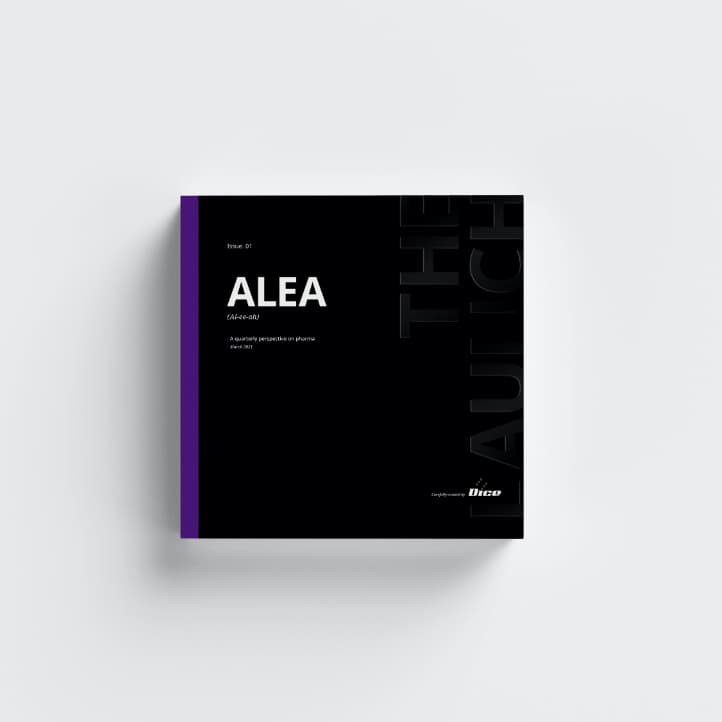
A platform for change
How pharma can use social media to promote the truth and counter false narratives.

Whether you’re a fan of it or not, social media has become a key component in our lives. More than half of the world now uses social media – a staggering 4.2 billion active users, to be precise. Facebook, the most-used platform, attracts 2.7 billion active users each month. Instagram (1 billion) and Twitter’s (330 million) numbers seem almost unimpressive in comparison, yet they are still huge.
The impact of social media on approaches to health
The vast majority of people use social media platforms to keep up to date with current events and find information; this includes health-related information. In fact, a recent survey found that more than 40% of people say that information found via social media affects their approach to their own health. And of the demographic most likely to use social media for health-related discussions (18- to 24-year-olds), 90% said they would trust medical information shared by others on social networks.
Social media as part of your marketing strategy
Clearly these numbers show the importance of social media for the pharma marketing industry. Yet if you were to ask people to name brands with large online presences, there’s a good chance they wouldn’t mention many (or any) pharma companies. Of course, in the UK the promotion of medicines is strictly and closely monitored by the Association of the British Pharmaceutical Industry (ABPI); although pharmaceutical companies are still able to share impartial information on social media, provided it complies with the ABPI Code of Practice.
So, when you consider the rules and regulations imposed upon them, it’s not really all that surprising that some companies may not see social media as the best use of their marketing budget. This may go some way in explaining the lack of social media presence, but this doesn’t have to be, or even should be the case.
Pharma companies have a certain amount of responsibility to be present on social media, not just for their own interests, but for the interest of the industry and the general public as a whole.
Fighting the spread of misinformation
Whilst platforms like Facebook and Instagram can be a good place to get answers on lifestyle and health, a certain amount of precaution needs to be taken as the sources of this information may not be the most reputable.
There is more misinformation being spread online than ever, and whilst trusted information still carries weight, fake news or misleading articles are constantly popping up on our feeds, often shared by names with the power to influence (including politicians and celebrities). Particularly in the past 12 months or so, a lot of misinformation being spread has related to Covid-19 and vaccines. Pharma brands have faced a combative environment from anti-vaxxers and conspiracy theorists who have been determined to damage the efforts of those involved in the development of vaccines. There is a distrust of big pharma amongst a large population (not just those who identify as anti-vaxxers), and this distrust isn’t new.
Whether it be vaccines, anti-cancer treatment, or any kind of new development, there’s a feeling among many that the wool is being pulled over their eyes. As a result, pharma companies have for some time been coming under a social media assault. Of course, governments and educational authorities need to do their bit in fighting this distrust, but pharma brands also need to respond to this assault.
Specifically, brand communicators need to recognise that the best way of fighting back against the fear caused by instigators is to promote the truth and counter the false narratives. The more brands can manage risks to reputation and value, the better chance they have of controlling the conversation and re-addressing the lack of confidence and confusion that currently exists around modern medicine.
“Brand communicators need to recognise that the best way of fighting back against the fear caused by instigators is to promote the truth and counter the false narratives.”
Showcasing brand values
Social media is probably the best way to showcase a brand’s values, and as highlighted above, pharma companies should take any opportunity they can to boost their reputation. As well as posting relevant and informative content that shows audiences the value they offer beyond corporate, pharma brands can also use social platforms to provide an insight into what goes on behind the scenes, giving them a more human feel.
Staying relevant
People follow brands for a reason. Maybe they’ve had a good customer experience, they want to keep up with industry changes, or they just find their posts interesting. Once they’re following, they should want to remain a follower. Social media lets you post entertaining and informative content that people should want to read, ensuring that they’re happy whenever your brand appears on their feed.
It’s also interesting to note that videos generate over 1,200% more shares than posts containing texts and/or images (infographics are also worth considering!). The more interesting the content, the more times a post will be shared – leading to more views, more followers and stronger relationships with audiences. By building relationships, a brand will stay relevant as the audience will want to keep reading and sharing your posts.
Becoming a thought leader
For big brands, it’s important to stand out these days, but in a world where everyone is trying to make their voice heard it’s becoming increasingly difficult to do so.
Social media can help pharma companies use their platform to become trusted suppliers of information. Continually posting informed opinions and the best answers to questions that target audiences are asking will position a pharma company as a go-to expert in the field, establishing trust in the process. Never a bad thing for pharma.
“Social media can help pharma companies use their platform to become trusted suppliers of information.”
Remaining compliant
Of course, anything posted on social media must still abide with the ABPI Code of Practice. Don’t worry, this doesn’t mean you need to hire a lawyer to run your Twitter page. However, it’s advisable to have people familiar with the guidelines reviewing posts before they go live.
Further to this, a social media strategy with guidelines for employees will help get everyone on the same page.
Keeping an eye on comments that users leave on posts is also recommended as these can sometimes be an issue. It’s better to be safe than sorry, so consider removing comments that raise compliance issues or make inappropriate claims.
“Pharma brands can also use social platforms to provide an insight into what goes on behind the scenes, giving them a more human feel.”
Whether you’re looking for more advice on social media best practice, or a strategy aligned with your goals, don’t hesitate to get in touch with Dice today. We’d love to help amplify your brand.






